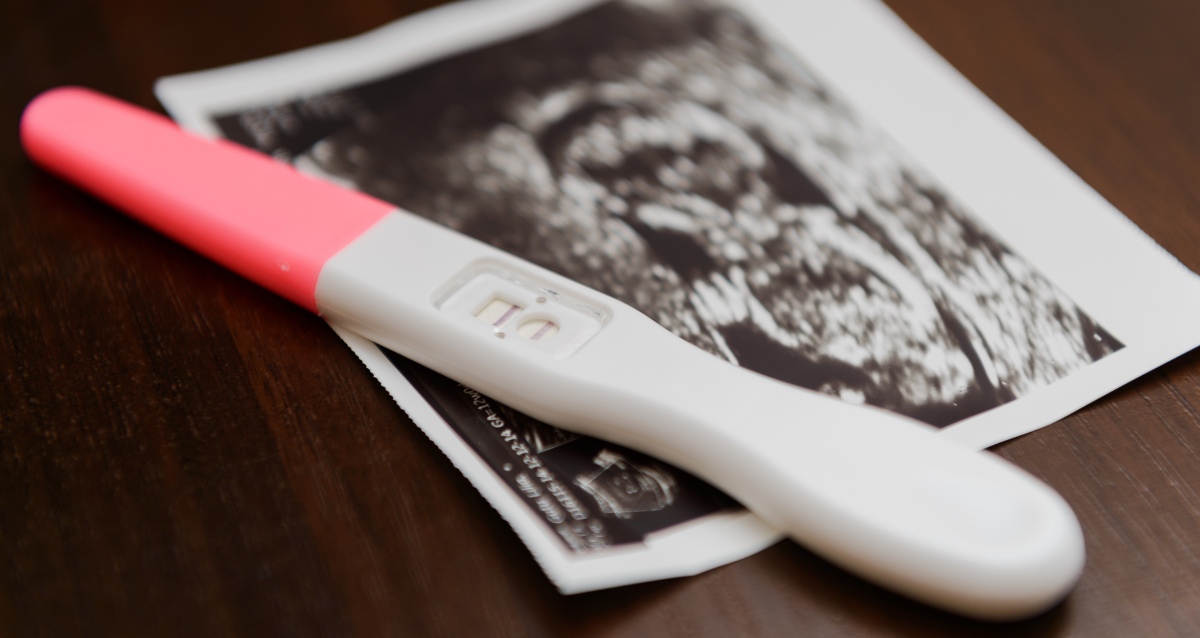Published on the 27th May 2021 and updated on the 6th of May 2025.
One of the most common questions we get asked here at Creative Love is whether it’s possible to go through with surrogacy without prior pregnancy. The answer isn’t as straightforward as a yes or no.
At Creative Love we are here to walk you through the possibilities, the requirements, and the steps involved in becoming a surrogate.
Let’s answer this question below.
Can I Be a Surrogate Without Having a Child?
The short answer is that it’s possible but not typical.
Most surrogacy programs prefer women who have already had a child of their own.
This is because women with prior pregnancies better understand the physical and emotional demands of pregnancy.
It also reduces the risk of complications.
Why Having Previous Pregnancies is Often a Requirement
Pregnancy Experience Matters
One of the primary reasons surrogacy agencies require women to have previously carried a pregnancy is to ensure they understand what pregnancy involves.
If you’ve never been pregnant, it can be difficult to tell how your body will react.
You will have no idea how you will react to the embryo transfer, hormonal changes, or the general challenges of pregnancy.
Surrogacy professionals who have gone through the process before will know how their body will react.
They will also have an idea if they struggle with things like morning sickness, sciatica, and the emotional toll a pregnancy can take on a person.
For example, if a surrogate candidate has suffered from hyperemesis gravidarum, a severe form of morning sickness, then they will need to be monitored quite carefully in early pregnancy.
Reducing The Risk of Pregnancy Complications
A history of previous pregnancies, especially those that resulted in healthy births, shows that you are likely to be able to carry a child to term again.
This is an important surrogate qualification.
However, we should mention that each pregnancy is its own journey, and sometimes things just do not go according to plan. Learn if you can be a surrogate if you never had a child.
Emotional Readiness
Carrying a child for someone else is a deeply emotional experience.
Surrogates need to be mentally prepared for this journey.
Having had a child before gives you insight into your expected emotional challenges.
You will also know how to handle the ups and downs of carrying a baby.
This is so important when you’re not carrying your own biological child. Learn about the embryo transfer process.
What If I Haven’t Had a Child? Is There Any Chance for Me to Become a Surrogate?
Unfortunately, if you haven’t had children of your own, it’s highly unlikely that you’ll be considered for surrogacy.
The reason for this is that surrogacy usually requires prior pregnancy experience to ensure you’re physically and emotionally prepared for the challenges that come with carrying someone else’s child.
While surrogacy agencies do evaluate each case on an individual basis, the reality is that most agencies will not consider women without prior pregnancy experience.
Having already carried a pregnancy to term helps ensure that you understand the physical demands and emotional nuances of pregnancy.
This is vital when taking on the role of a surrogate.
Without this experience, agencies often feel that the risks and emotional toll of surrogacy could be too overwhelming.
What Are the Requirements for Becoming a Surrogate If I Have Had A Prior Pregnancy?
There are some basic surrogacy requirements for becoming a surrogate. These surrogate qualifications include the following [source]:
Medical Requirements:
✅Good health: You should be in good health. This means no major medical conditions like diabetes or high blood pressure.
✅Body mass index (BMI): A healthy weight is important. This is because being overweight can increase the risk of pregnancy complications.
✅No smoking or substance abuse: Surrogates must be non-smokers and should not abuse alcohol or drugs.
✅No history of major pregnancy complications: Conditions like preterm labor, miscarriage, or gestational diabetes may make you ineligible as a surrogate.
Psychological Qualifications:
✅Emotional readiness: Surrogates must be emotionally stable. They need to be prepared for the potential emotional challenges that come with being a gestational carrier.
✅Psychological screening: Mental health evaluations are required. This is to ensure that you’re mentally and emotionally prepared for the surrogacy journey.
Age Range
✅Guidelines suggest that surrogates are between the ages of 21 and 40.
✅This is because, as women get older, there are more complications that could affect a healthy and successful pregnancy.
What You Can Expect During The Surrogacy Process
If you meet the qualifications and decide to move forward with surrogacy, here’s what the process looks like:
Initial Application and Screening
- The first step is filling out an application with our surrogacy agency.
- This includes details about your medical history, lifestyle, and motivations for becoming a surrogate.
- You will undergo a medical evaluation to ensure you’re in good health.
- You will also meet with a mental health professional to assess your emotional readiness.
Matching with Intended Parents
- If you are approved, the agency will match you with intended parents who are looking for a surrogate. This is based on compatibility and shared values.
Surrogacy Contract and Legal Documents
- Once matched, you’ll sign a surrogacy legal contract.
- This is a legal document that outlines the responsibilities and expectations of both you and the intended parents.
- The contract also protects you legally.
- It ensures that the intended parents are recognized as the child’s legal parents after birth.
Medical Appointments and Embryo Transfer
- You’ll undergo several medical appointments.
- This includes fertility treatments and screenings to prepare for the embryo transfer.
- The embryo transfer is a key part of the process.
- It involves implanting an embryo (created from the intended parents’ egg and sperm) into your uterus.
Pregnancy and Medical Monitoring
- After the transfer, you’ll be monitored by medical professionals to ensure a healthy pregnancy.
- You’ll also attend regular appointments to check on the health of the baby and monitor your progress.
The Birth and Postpartum Care
- Once you give birth, the intended parents will take over and assume custody of the baby.
- After delivery, you’ll continue to receive postpartum care to ensure your health and emotional well-being.
Are You Prepared For The Emotional Challenges of Surrogacy?
Becoming a surrogate, especially without prior pregnancies, can bring unique emotional challenges. It’s important to understand the potential emotional impact and be prepared for the ups and downs.
Understanding Attachment Issues:
✅Surrogates may feel a bond with the child they’re carrying.
✅Though the child is not biologically theirs, the hormonal changes and nine months of carrying the baby can create strong emotional connections.
Postpartum Emotional Health:
✅After giving birth, some surrogates may experience emotional shifts.
✅Conditions like postpartum depression or a sense of loss after the birth are not uncommon.
✅It’s vital to have a strong support system and access to mental health professionals postpartum.
Creative Love: Your Partner in the Surrogacy Journey
At Creative Love, we’re here to guide you through every step of the surrogacy process. Our experienced team of surrogacy specialists are on hand to help you understand what’s involved.
This includes the necessary qualifications, including the gestational carrier qualifications and surrogacy requirements, while providing support throughout your surrogacy journey.
If you’re considering becoming a gestational surrogate, don’t hesitate to reach out to us. We can help you navigate the process and ensure that you’re fully prepared for this amazing journey.
Ready to Begin Your Surrogacy Journey?
If you’re ready to explore becoming a surrogate, contact Creative Love today. We’ll provide the support, guidance, and information you need to make the right decision for you and for the intended parents. Together, we can make a family’s dream of having a child come true.
Frequently Asked Questions
Can I be a surrogate if I’ve never been pregnant? What Are The Surrogate Qualifications?
While you may be medically capable of carrying a pregnancy, most intended parents and medical professionals prefer working with women who have experience with prior pregnancies. This helps ensure the understanding of what pregnancy entails.
Can a virgin be a surrogate mother?
Typically, no. The reasoning is the same as above, as surrogacy usually requires experience with pregnancy. Without prior experience, it can be difficult to assess how your body will react during the surrogacy process.
I want to become a surrogate, but I haven’t had any children. What can I do?
While you may not be able to become a surrogate right now, it’s still possible for you to become a gestational carrier in the future after experiencing pregnancy. Once you’ve carried a child to term, you could potentially begin your successful surrogacy journey.
What disqualifies you from being a surrogate?
- Age: Prospective surrogates are usually between 21 and 40 years old.
- BMI: Health is vital for surrogacy to ensure minimal risk. Women with a BMI above a certain level may not qualify.
- Substance Abuse: Any history of substance abuse, including smoking and alcohol abuse, may disqualify you from becoming a gestational carrier. Medical records may be checked.
- Citizenship: Surrogates must be U.S. citizens or legal permanent residents. The surrogacy program must take place in a surrogacy-friendly state.
Can you get a surrogate without a medical reason?
Yes. Many women who are unable or unwilling to experience pregnancy may choose gestational surrogacy as an option to build their families.
Can a single mother become a surrogate?
Yes, single mothers can absolutely become gestational carriers. It can be a fulfilling way to provide a priceless gift to another family, and it could also offer a source of additional income.
What happens if a surrogate gets pregnant with her own child?
Rest assured, once you begin the surrogacy process and follow all required medical procedures, you will carry the intended parents’ child, not your own. The process is carefully managed to avoid such scenarios.
Wendy Arker entered the field of infertility with a huge heart and passion to guild others on their quest to grow their own family after her personal journey with infertility and turning to egg donation and sperm donation to create her own family. Being a single-mother-by-choice, Wendy understands firsthand the unique way families are built. Whether you’re a married couple, single, or LBGTQ, Creative Love is committed to assisting you.





